Songs from the Second Floor
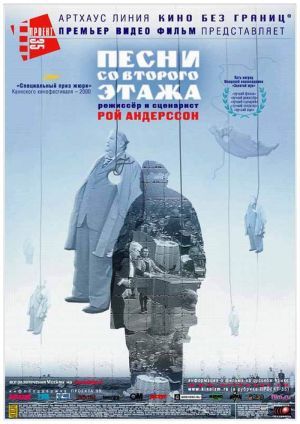 This film is one in which everyone is a spectator, being human is extremely difficult, and the viewer is given a looking-glass into the sordid lives of characters who function in a gray existence.
This film is one in which everyone is a spectator, being human is extremely difficult, and the viewer is given a looking-glass into the sordid lives of characters who function in a gray existence.
Many compare the film to Swedish Opera, but for me it is like a blend of performance art and visual poetry that takes everyday life and heightens your awareness of its many disappointments to the point that it is both painful and funny.
Loves of a Blonde
 New Wave filmmakers are given credit for the way that contemporary cinema has developed. French and Italian directors in the '60s were, and still are, given the most attention abroad for their work, but there are many films from Iran, East Asia and Czechoslovakia that are lesser-known gems. Milos Forman's filmography consists of many acclaimed films, including One Flew over the Cuckoo's Nest and Amadeus, but Loves of a Blonde marks the beginning of his worldwide popularity and his first Academy Award nomination. When the film premiered at the New York Film Festival, it was considered to be as endearing and classic as Truffaut's The 400 Blows, which had its premier a few years earlier. The prevailing formalistic approach to filmmaking is absent here; the film is simple, realistic, and shot in real-time.
New Wave filmmakers are given credit for the way that contemporary cinema has developed. French and Italian directors in the '60s were, and still are, given the most attention abroad for their work, but there are many films from Iran, East Asia and Czechoslovakia that are lesser-known gems. Milos Forman's filmography consists of many acclaimed films, including One Flew over the Cuckoo's Nest and Amadeus, but Loves of a Blonde marks the beginning of his worldwide popularity and his first Academy Award nomination. When the film premiered at the New York Film Festival, it was considered to be as endearing and classic as Truffaut's The 400 Blows, which had its premier a few years earlier. The prevailing formalistic approach to filmmaking is absent here; the film is simple, realistic, and shot in real-time.
The story takes place in Zruc, a desolate Czech town adjusting to Communist rule. The war has rendered the female to male ratio 16 to one, and women of all ages are more or less forced into factory labor making shoes and textiles. The factory manager is sympathetic to the changing times and their needs, and he's concerned about the town's fate. Like a doting father, he worries about the hundreds of girls under his employ and approaches an army officer for help. He asks him to bring a regiment of soldiers into town in order to cure the longings of the young ladies.
A Man Escaped
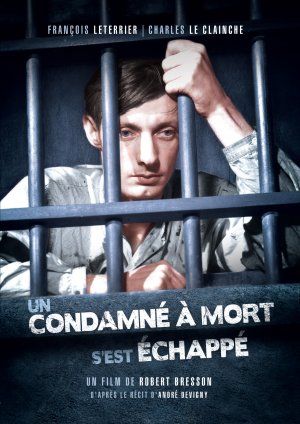 What do you think of when you hear the term French New Wave? Do you think of Francois Truffaut's The 400 Blows or Breathless, Jean-Luc Godard's first feature film? Surely the majority of those who adore the movement and acknowledge its influences believe that Truffaut, and in some circles, Godard, were the inventors of the French New Wave. Not to spit in anyone's soup, but I'd argue against those claims using this film alone. The attractiveness of a film like The 400 Blows comes from its simplicity and the relation of the film to the director. Of course there's the auteur theory mixed in and Truffaut did write the film, but the most important aspect of it is the director’s relation to story and how well its messages were relayed based on that relationship. The 400 Blows is an autobiographical tale that stems from Truffaut's boyhood, and therefore no-one else could have made it work except him. In that sense, it resembles art more than entertainment because of the personal aspect and a story about societal detachment, which many people can relate to. But he wasn't the first to make such a film. Robert Bresson, one of my favorite directors, did the same thing these directors did, only first. A Man Escaped is about a French POW, and in reality Bresson spent time as a POW in Germany before becoming a screenwriter and director.
What do you think of when you hear the term French New Wave? Do you think of Francois Truffaut's The 400 Blows or Breathless, Jean-Luc Godard's first feature film? Surely the majority of those who adore the movement and acknowledge its influences believe that Truffaut, and in some circles, Godard, were the inventors of the French New Wave. Not to spit in anyone's soup, but I'd argue against those claims using this film alone. The attractiveness of a film like The 400 Blows comes from its simplicity and the relation of the film to the director. Of course there's the auteur theory mixed in and Truffaut did write the film, but the most important aspect of it is the director’s relation to story and how well its messages were relayed based on that relationship. The 400 Blows is an autobiographical tale that stems from Truffaut's boyhood, and therefore no-one else could have made it work except him. In that sense, it resembles art more than entertainment because of the personal aspect and a story about societal detachment, which many people can relate to. But he wasn't the first to make such a film. Robert Bresson, one of my favorite directors, did the same thing these directors did, only first. A Man Escaped is about a French POW, and in reality Bresson spent time as a POW in Germany before becoming a screenwriter and director.
The film opens with a note from Bresson that simply states, “This is a true story.” Nowhere does it imply that it is his story or something similar, just that it's not a fabrication. Followed by this is the image of a stone and etched into it is a short passage paying respects to 7,000 Frenchmen who were killed by Nazis and Nazi allies. Next we see a simple sequence of a handsome man riding in a car. The camera is focused on his hands, which slowly creep towards the door handle of the moving vehicle. As the camera pulls away, we see two men handcuffed beside him and can make out “SS” uniforms on the driver and front passenger. We see the man hesitate and consider leaping from the car, and eventually he musters up the courage to do so. Within seconds he's returned and pistol-whipped as punishment, but they keep him alive and put him in prison. This opening sequence sets the stage for a story that has enough suspense to stand up to Hitchcock and enough pathos and realism to be considered the true beginning of French New Wave.
Mephisto
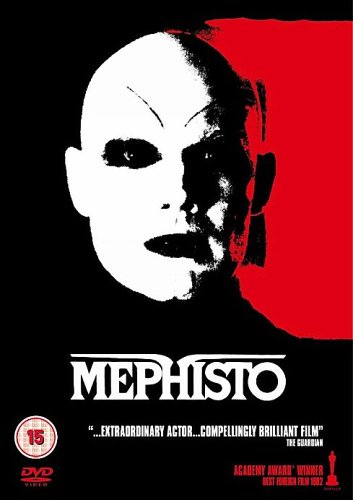 Mephistopheles, or Mephisto, is a character from German folklore that is an evil demon, or more suitably, the devil. The demon element to the character appears in the German legend of Faust in which an ambitious man makes a pact with the devil in order to obtain ultimate power and great success. This legend plays a huge part in this film, though the story is also heavily based on Klaus Mann's novel Mephisto and the life of Gustaf Grünfgens, the theater manager, actor, and director who was revered as one of the best of his time. Grünfgens's career prior to the rise of Hitler and the Nazi regime was fruitful, and being a sympathizer with the Third Reich certainly helped him prosper and continue to do so after the fall of Hitler. Grünfgens was also bipolar, for lack of a better word, when it came to his morals, sexuality, and political affiliations. Knowing this information may or may not take away some of the magic of the film. However, Klaus Maria Brandauer's performance is more than a stormy reincarnation of Grünfgens and the Faustian legend. It shows the upside of having an egoist portray a person who is so sure of themselves that they deny their affiliation with true evil.
Mephistopheles, or Mephisto, is a character from German folklore that is an evil demon, or more suitably, the devil. The demon element to the character appears in the German legend of Faust in which an ambitious man makes a pact with the devil in order to obtain ultimate power and great success. This legend plays a huge part in this film, though the story is also heavily based on Klaus Mann's novel Mephisto and the life of Gustaf Grünfgens, the theater manager, actor, and director who was revered as one of the best of his time. Grünfgens's career prior to the rise of Hitler and the Nazi regime was fruitful, and being a sympathizer with the Third Reich certainly helped him prosper and continue to do so after the fall of Hitler. Grünfgens was also bipolar, for lack of a better word, when it came to his morals, sexuality, and political affiliations. Knowing this information may or may not take away some of the magic of the film. However, Klaus Maria Brandauer's performance is more than a stormy reincarnation of Grünfgens and the Faustian legend. It shows the upside of having an egoist portray a person who is so sure of themselves that they deny their affiliation with true evil.
br /> Brandauer plays Hendrik Hoefgen, an up-and-coming actor and theater director in Hamburg, Germany. In the beginning, Hoefgen wanted to take the stiffness from the stage by eliminating the distance between audience and performer. His aim was to create a new theater, full of vibrant and charismatic characters who could move audiences in a way that had never been done before. He also romanticized the idea of bohemian theater—one in which miners and laborers could feel comfortable and included. This led to his passionate pursuit of a revolution through theater, though there was little to revolt against in the beginning.
Loulou
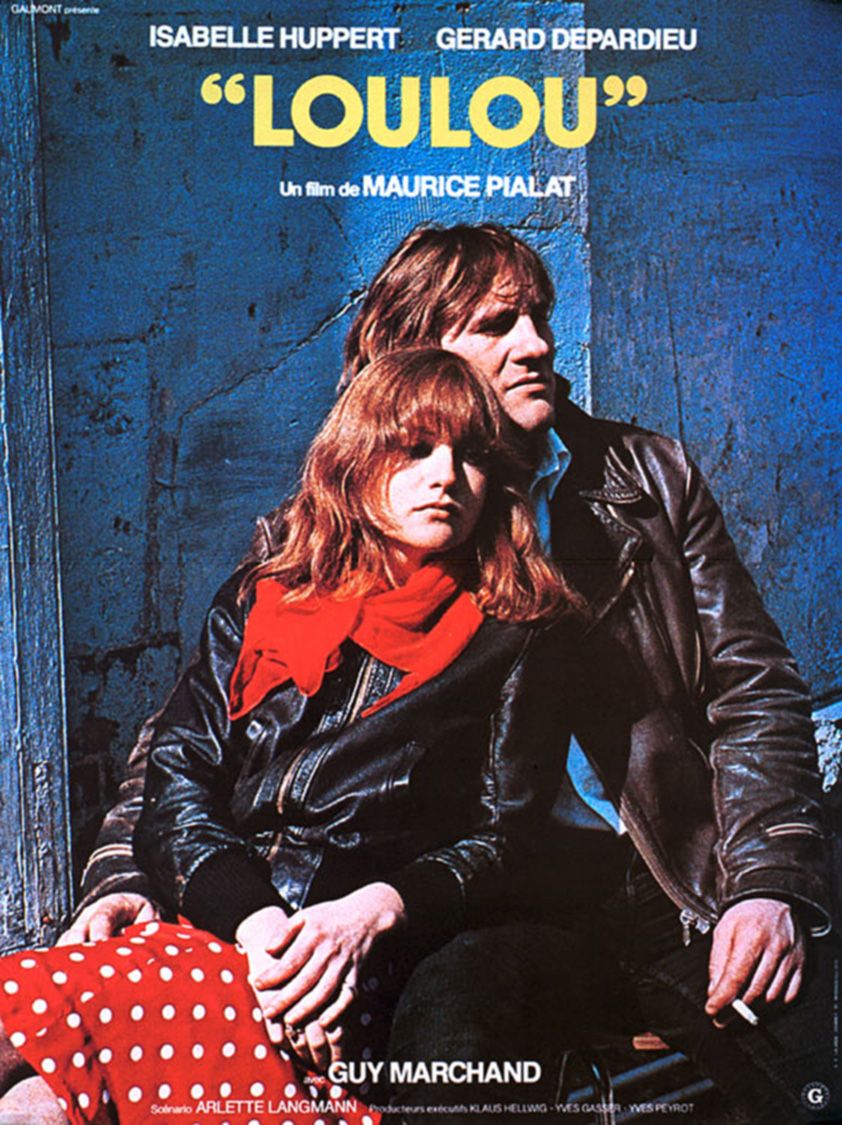 Some of the most daring romantic dramas are ones in which the lovers in question are total opposites, or with each other for reasons that don't have anything to do with love. While anticipating their breakup throughout the film's entirety, you take on the role of a mediator in your imagination. You notice the flaws in each lover, and how those very flaws attract the other person. You take sides in their disputes depending on whoever seems to be more tolerable. It's precisely this kind of intrusion—the ability to analyze and compare someone's circumstances with your own—that makes the story work and keeps you invested.
Some of the most daring romantic dramas are ones in which the lovers in question are total opposites, or with each other for reasons that don't have anything to do with love. While anticipating their breakup throughout the film's entirety, you take on the role of a mediator in your imagination. You notice the flaws in each lover, and how those very flaws attract the other person. You take sides in their disputes depending on whoever seems to be more tolerable. It's precisely this kind of intrusion—the ability to analyze and compare someone's circumstances with your own—that makes the story work and keeps you invested.
In the film Gerard Depardieu plays Loulou, a penniless playboy and ex-con who prides himself on breaking girls' hearts by flaunting his unwillingness to be monogamous. His whipped ex-girlfriend Dominique follows him around like a sick puppy, giving us the perfect illustration of his effect on women and their willingness to be spat on while in or out of a relationship with him. At a discotheque he falls under the bewitching spell of Nelly (Isabelle Huppert), a married woman from an upscale background who's been followed to the club by her husband Andre (Guy Marchand). As he watches her dance and flirt with Loulou, he comes to the conclusion that she needs to be outed as a tramp in public. Following his verbal and physical abuse, Nelly decides to start her first extramarital affair with Loulou.
1-900 (aka 06)
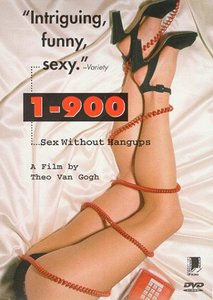 Using a cast of only two people and a set of two homes, 1-900 attempts to explore the dynamics of a relationship between two people who can't have a functional relationship with someone they can physically approach. Through a sex hotline, a woman named Sarah (Ariane Schluter) describes herself as an art enthusiast and an open-minded intellect. A man named Thomas (Ad van Kempen) responds to her ad with his phone number, and Sarah calls him back on a Thursday night. The awkwardness of their first conversation is no different than that which occurs during a first date. They inquire about past marriages, children, age, occupation and so on. The man claims to be 33, with features that are a far cry from reality. The woman does the same, except she presents herself as someone more “ethnic” than she really is. The imagination aspect to the experience distracts them from the sole purpose of the hotline. So, seeing as how they did in fact meet through a sex agency, they eventually try to move the conversation towards sex. Neither of them actually undresses nor makes a motion to participate. It shows through Sarah’s giggling and Thomas's fear of being mocked by her, or worse, overheard by someone who may or may not be in the room with her. The conversation ends despairingly, but Sarah calls back the following Thursday and wholeheartedly starts to participate. Thomas is then more than happy to oblige.
Using a cast of only two people and a set of two homes, 1-900 attempts to explore the dynamics of a relationship between two people who can't have a functional relationship with someone they can physically approach. Through a sex hotline, a woman named Sarah (Ariane Schluter) describes herself as an art enthusiast and an open-minded intellect. A man named Thomas (Ad van Kempen) responds to her ad with his phone number, and Sarah calls him back on a Thursday night. The awkwardness of their first conversation is no different than that which occurs during a first date. They inquire about past marriages, children, age, occupation and so on. The man claims to be 33, with features that are a far cry from reality. The woman does the same, except she presents herself as someone more “ethnic” than she really is. The imagination aspect to the experience distracts them from the sole purpose of the hotline. So, seeing as how they did in fact meet through a sex agency, they eventually try to move the conversation towards sex. Neither of them actually undresses nor makes a motion to participate. It shows through Sarah’s giggling and Thomas's fear of being mocked by her, or worse, overheard by someone who may or may not be in the room with her. The conversation ends despairingly, but Sarah calls back the following Thursday and wholeheartedly starts to participate. Thomas is then more than happy to oblige.
On Thursdays Sarah continues to call and the two slowly warm up to and become dependent on each other’s company. Thomas is an architect who loves boring people with his passion for creating structures. Sarah is an art professor who shares secrets that do more than provoke. Their conversations don't always lead to having mutual phone sex; sometimes one of them will pretend to listen to the other talk while secretly getting-off on the sound of the other’s voice. Both Sarah and Thomas become too comfortable and, in their own right, selfish with their desires. Jealousy becomes a factor in their relationship when Sarah’s actual rendezvous with people outside of what they share are claimed, by Thomas, to constitute infidelity. While he's under the impression that he is “in her soul” and a real part of her life, she constantly reminds him that their circumstances are anything but soulful. Thomas's frustration over her power (she hasn't disclosed her own number and always calls him) starts to create larger problems. His prying becomes threatening when he discovers her real name and address by chance. With the possibility of him digging into her past and discovering her biggest secret, or ruining her good name, the two grow apart and lose the magic of anonymity.
Sitcom
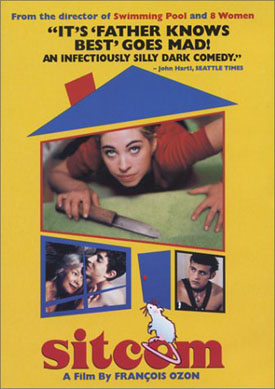 François Ozon is known, for the most part, for his thrillers and films that more or less focus on romantic scenarios, whether they be heterosexual or homosexual. His films have a touch of absurdity, but not always necessarily for absurdity's sake, if that makes any sense. Sitcom is my personal favorite among his works because it takes the concept of a sitcom—the suburban family with teenage children—and heightens it to incomparable and outrageous extremes. These sorts of television series are usually about families pulling together to overcome obstacles that every family eventually faces. For many viewers, they present a fantasy in which you can escape your own family, with subjects that many view as perfect. Some even see these characters as people to measure up to. I'm more referring to shows like The Cosby Show, where people have a cookie-cutter existence. However, in the mid-to-late '90s, there was a trend of shows that gave you the exact opposite feeling, like Married with Children. These shows were unrealistic, often trashy depictions of home life that were pleasurable because they came off as something that an average person could measure up to. Not to mention people found the tastelessness funny. But the bar was lowered, so to speak. Ozon's Sitcom lowers the bar even further and takes its time presenting a ludicrous plot that glorifies fetishism, tactlessness, neurosis, and sociosexual disarray.
François Ozon is known, for the most part, for his thrillers and films that more or less focus on romantic scenarios, whether they be heterosexual or homosexual. His films have a touch of absurdity, but not always necessarily for absurdity's sake, if that makes any sense. Sitcom is my personal favorite among his works because it takes the concept of a sitcom—the suburban family with teenage children—and heightens it to incomparable and outrageous extremes. These sorts of television series are usually about families pulling together to overcome obstacles that every family eventually faces. For many viewers, they present a fantasy in which you can escape your own family, with subjects that many view as perfect. Some even see these characters as people to measure up to. I'm more referring to shows like The Cosby Show, where people have a cookie-cutter existence. However, in the mid-to-late '90s, there was a trend of shows that gave you the exact opposite feeling, like Married with Children. These shows were unrealistic, often trashy depictions of home life that were pleasurable because they came off as something that an average person could measure up to. Not to mention people found the tastelessness funny. But the bar was lowered, so to speak. Ozon's Sitcom lowers the bar even further and takes its time presenting a ludicrous plot that glorifies fetishism, tactlessness, neurosis, and sociosexual disarray.
The family in focus starts out average; a father (François Marthouret) who's the breadwinner and fairly detached from everyone; a mother (Évelyne Dandry) who does the child-rearing and is a nervous wreck; a son, Nicolas (Adrien de Van) who is introverted and academic; a promiscuous daughter, Sophie (Marina de Van) with charm, a cute boyfriend and a lot of vulnerability. They get a Spanish maid, Maria (Lucia Sanchez) who is married to a man from Africa named Abdu. The balance is stagnant—not a threat to the viewer or even that interesting. One day the father comes home with an albino lab rat, which is met with adoration from everyone except the mother, who finds it repulsive.
Léon Morin, Priest
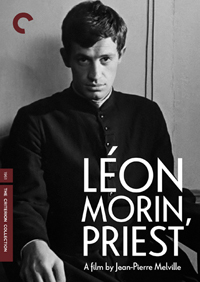 Theism has always been a dominating and polarizing subject in philosophy. For the late philosophers who were atheists, their argument against God's existence often clashed with the popular arguments of reason that suggest we all have a soul. The question of whether or not this soul needs salvation cannot ever be answered. Léon Morin, Priest has a character that goes as far as to suggest the need for uncertainty in religion. Without it, the priest claims, there wouldn't be a cause for faith. As in love, he compares devotion to God as merely a “leap of faith”--a belief held by many theists and philosophers. But for Barny, his latest attempt at conversion, one cannot compare the loves of the flesh with that of a Holy spirit.
Theism has always been a dominating and polarizing subject in philosophy. For the late philosophers who were atheists, their argument against God's existence often clashed with the popular arguments of reason that suggest we all have a soul. The question of whether or not this soul needs salvation cannot ever be answered. Léon Morin, Priest has a character that goes as far as to suggest the need for uncertainty in religion. Without it, the priest claims, there wouldn't be a cause for faith. As in love, he compares devotion to God as merely a “leap of faith”--a belief held by many theists and philosophers. But for Barny, his latest attempt at conversion, one cannot compare the loves of the flesh with that of a Holy spirit.
Following the Italian occupation in France during WWII, a small village is now met with the hostility of Nazi Germany. As the German troops move in to capture and deport Jews, many townspeople scuffle to prove their allegiance to Christ. Children are given hasty baptisms in large numbers and the widows of men lost in battle try desperately to stay true to France while deceiving the Nazi regime. Barny (Emmanuelle Riva) is one of these women. Husbandless and with a young daughter, she decides to visit the Catholic church to seek advice. Though she's an atheist, the village leaves no other options in charitable good will. Of the two priests available to speak to she chooses Léon Morin (Jean-Paul Belmondo), a 26-year old man from a modest family. She expects to be met by a man who blindly lays claim to God but is surprised at his complex outlook on faith and his willingness to tolerate her absence of it.
In China They Eat Dogs
 Arvid (Dejan Cukic) is a pushover who can't seem to find his way in life. He works at a bank and lives with his girlfriend, Hanne. The two get into an argument over breakfast because Arvid donated 800 crowns to a church fund—money that Hanne wanted to use for shopping. As he tries to move past the dispute unscathed she makes him out to be a boring purist who's trying to save the world.
Arvid (Dejan Cukic) is a pushover who can't seem to find his way in life. He works at a bank and lives with his girlfriend, Hanne. The two get into an argument over breakfast because Arvid donated 800 crowns to a church fund—money that Hanne wanted to use for shopping. As he tries to move past the dispute unscathed she makes him out to be a boring purist who's trying to save the world.
We then jump to Richard (Lester Wiese), a traveling American who settles into a seat at a bar and has a mysterious meeting with Arvid at noon. The bartender and a patron start to chat with him. With two hours to spare until Arvid's arrival, he recaps the recent series of events that have put Arvid in a delicate situation—a man who up until 12 days prior Richard had never heard of.
The Rabbit is Me
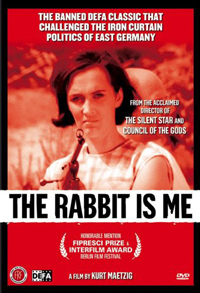 With films that have been or are currently banned in their country of origin comes an instant intrigue in me. Apparently this film was banned for “exposing the harsh realities of East German society,” but that statement, seen on the back of the DVD cover, is a little ambiguous. While watching the film you do get a vague understanding of the politics and lack of justice in the judicial system of 1960s Germany; you begin to understand that the film's “anti-socialist” message could have come as a great threat. However, there is a lot left unexplained—a lot that you have to go and research on your own, and that's not necessarily a bad thing. Somehow you don't mind being led into a haze because the film's heroine, a blacklisted 19-year old, is an astounding portrait of the system's failure. Her will to overcome the setbacks of an “opportunist” and unjust society gives you hope. It's that hope of something better and more democratic that could have been contagious, and was therefore silenced. Still, The Rabbit is Me is hailed as one of the most important New Wave films to come out of Germany.
With films that have been or are currently banned in their country of origin comes an instant intrigue in me. Apparently this film was banned for “exposing the harsh realities of East German society,” but that statement, seen on the back of the DVD cover, is a little ambiguous. While watching the film you do get a vague understanding of the politics and lack of justice in the judicial system of 1960s Germany; you begin to understand that the film's “anti-socialist” message could have come as a great threat. However, there is a lot left unexplained—a lot that you have to go and research on your own, and that's not necessarily a bad thing. Somehow you don't mind being led into a haze because the film's heroine, a blacklisted 19-year old, is an astounding portrait of the system's failure. Her will to overcome the setbacks of an “opportunist” and unjust society gives you hope. It's that hope of something better and more democratic that could have been contagious, and was therefore silenced. Still, The Rabbit is Me is hailed as one of the most important New Wave films to come out of Germany.
In the film we find a 17-year old Maria (Angelika Waller) at the end of her high school education. Like all of her peers, she's exceptionally bright and a strong-willed young lady. She and her brother are orphans who live with their aunt (Ilse Voigt), and just before graduation, two officers come calling. They inform the broken family that their brother/nephew, Dieter (Wolfgang Winkler), is being charged with inciting subversive material, which could lead to a 3-year prison sentence. They try to appear at his trial but are removed on questionable grounds from the courtroom. Young Dieter loses the trial. Before being locked up he's able to see his family, and he warns his sister to be wary of two people. The prosecutor and the judge who put him away, Paul Deister.





